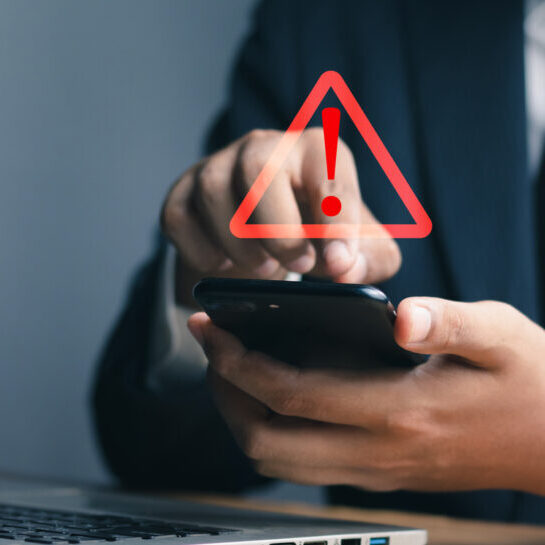Insights < BACK TO ALL INSIGHTS
Gambling Industry Takes on Addiction Prevention
Gambling Industry Takes on Addiction Prevention
By: Jordan Briggs
Last week, the National Council on Problem Gambling hosted advocates, regulators, counselors, and other industry participants in Columbus, Ohio for the National Conference on Gambling Addiction & Responsible Gambling 2025. With such a broad range of attendees, the conference offered many unique sessions geared towards different industry groups, including wellness sessions and recovery meetings alongside the overviews of ongoing, broad research and the operator-specific talks on emerging customer service tools.
I was fortunate enough to attend the conference, where I heard moving first-hand accounts and summaries of large-scale research across the country, both of which can be used to inform best practice recommendations in the gaming industry.
Responsible Gaming is Not Only for Problem Gamblers
Speakers and panelists often first addressed the difference between problem gambling and responsible gaming. Problem gambling, also known by other names including compulsive gambling or gambling disorder, “is gambling behavior that is damaging to a person or their family, often disrupting their daily life and career.”[1] Responsible gaming is the umbrella term for consumer protection tools, programs, and policies designed to prevent risky behaviors in gaming, especially those that can lead to problem gambling.[2] Responsible gaming efforts include those mandated by statutes and regulations alongside industry best practices and standards.
The distinction between problem gambling and responsible gaming is important in the legal realm because “gambling” as used in federal and state laws is a term of art with a unique definition in each state. Many states have a statute (or case law) that specifically defines gambling. If an activity does not meet the statutory definition of gambling, then it is not gambling under the law. However, players of games that are not legally gambling can still benefit from responsible gaming tools. Many prevention and treatment professionals at the conference also distinguished the two concepts, with the additional goal of removing the stigma from responsible gaming tools and resources.[3]
Best Practices for Responsible Gaming that Can be Used by Both Gambling and Non-Gambling Games
Responsible gaming efforts can also be used to develop responsible gameplay in games or platforms where players are more inclined to engage in risky behaviors, especially if those behaviors involve the ability to spend a lot of money or time at once, even if that game is not legally classified as gambling and even if it does not look like gambling. Operators in these industries may choose to call the efforts something else to make it clear that the game is not gambling while also removing some stigma from using the tools. However, the tools and resources can still be informed by the best practices described below.
Primarily, there was a large emphasis on providing preventative tools other than self-exclusion. Preventative tools are attractive for many reasons—the player may want to use the tools to make aspects of playing easier, like budgeting; the operator has a middle ground to offer players who want more control; and these tools can be adapted to the explosion of games and gaming adjacent products since the introduction of the internet and again with the addition of cryptocurrency and web3.
Some examples of common preventative tools include game timers, through which a player can cut themselves off for the day after a certain length of gameplay; temporary exclusion, through which players can take a break from the game for a set period of time; spending limits tied to the amount a player has predetermined they are comfortable spending in a certain period of time; and gameplay length reminders, simple popups that periodically tell the player how long they have been playing in one session. Common responsible gaming resources also include making a player’s account history, including transactions, easily available to them. It is easy to see how some of these tools can be adapted for different games. But preventative tools can also be unique to a specific type of gameplay. For example, in complex skill games, finding ways to train players without exposing them to loss, like walkthroughs and free plays, can help create a skilled player who is not reliant on luck to pull them through and can be a type of preventative tool (though not one to be used in isolation).
Just as important as the type of tools to be offered is the promotion of those tools. Recommendations for strong promotion of tools included: actually promoting tools to users, broadly in marketing campaigns, on the game platform, and in direct communications, and promoting the tools without other advertisements. Some attendees who identified as in recovery from compulsive gambling noted that even if they did not take advantage of the tools at the time, the seed was planted in their mind that tools and resources do exist to help them. However, certain sports betting operators at the conference noted that they saw a noticeable percentage increase in responsible gaming tool use after running marketing campaigns that fit these recommendations. So, while resonating with every person who might engage in risky gaming behavior is a noble goal but an unlikely one in practice, there is evidence that an increased knowledge about these tools does result in increased use as well.
There was also a large emphasis on the self-exclusion tool, which is perhaps the most well-known preventative tool and vital to many people’s recovery journeys. However, self-exclusion has not yet been perfected either. Choosing to exclude oneself from gambling is an important step in recovery, but it is often not easy. Exclusion is a state-defined process. Meaning that the statutes across the country have different steps to get on the lists, different consequences for being on the lists, and different procedures for sharing the lists with operators. Not only did numerous conference attendees share stories of driving state to state to self-exclude from each neighboring state within driving distance, but several also shared stories of driving casino to casino to self-exclude from each establishment. Sometimes, a state allowed statewide exclusion, but the casinos did not tell the individual that until they had already visited several establishments.
One of the biggest problems with the self-exclusion tool is that most self-exclusion lists are not provided to online gaming operators. Further, if someone self-excludes from a specific platform (as opposed to joining the statewide self-exclusion list) that operator may have no obligation to inform the state or other similar operators, especially if they operate an unregulated gaming platform. Industry operators, primarily in fantasy sports, at the conference acknowledged all these problems and have begun exploring and investing in solutions that could make self-exclusion from online platforms easier. Even so, it is considered best practices for gaming operators not offering gambling to still offer self-exclusion, even if it is only platform-wide, and to reserve the right to close a player’s account if the platform learns that player is on a state’s exclusion list.
While all of these tools are helpful, access to treatment is vital. It is important that the industry recognizes that prevention will not work for all players and that support is necessary for recovery. Many free resources are available, and one-on-one ongoing treatment can be available through insurance. Linking to these resources, without advertisements and without judgment, might help someone take the first step toward treatment. Even the resources that state they are for gamblers can be used to connect players of non-gambling games who believe they have a problem to treatment if they need it. The most common is 1-800-GAMBLER, a free, 24/7 helpline available nationwide in the United States. States also have their own resources, which can be helpful for operators to mention. For example, my state of Ohio has a directory of resources available at https://mha.ohio.gov/get-help/get-help-now/problem-gambling-resources. Additionally, for people who struggle more with excessive video game playing than with compulsive gambling, Gaming Addicts Anonymous may be a better fit, https://www.gamingaddictsanonymous.org/.
My final takeaway from the conference is that responsible gaming efforts are a group effort that can evolve and be adjusted as new needs emerge. Identifying and solving problems takes buy-in from the operators, compliance professionals, regulators, people in recovery, treatment professionals, and researchers.
[1] “FAQs: What is Problem Gambling?” NCPG, available at: https://www.ncpgambling.org/help-treatment/faqs-what-is-problem-gambling/ (last visited Jul. 24, 2025).
[2] See Responsible Gaming Regulations and Statutes Guide 2025, AGA, available at: www.americangaming.org/wp-content/uploads/2025/07/AGA-2025-Responsible-Gaming-Regulations-and-Guidelines.pdf. Summary available at: https://www.americangaming.org/resources/responsible-gaming-regulations-and-statutes-guide/.
[3] Removing stigma from problem gambling treatment is also an important step to make treatment more accessible. See, e.g., Quigley, Leanne, Gambling Disorder and Stigma: Opportunities for Treatment and Prevention Curr. Addict Rep. (Sept. 3, 2022), available at: https://pmc.ncbi.nlm.nih.gov/articles/PMC9440767/. However, the stigmas for problem gambling treatment may run structurally deeper than for responsible gaming, so separating the two conceptually will allow the issue of stigma to be more addressed in a more tailored way for each.





